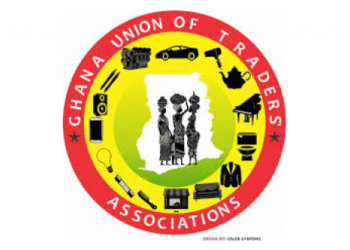The Minority Caucus in Parliament has criticised government’s apparent inaction following the United States’ recent imposition of a 10% tariff on Ghanaian exports, warning that the country could face a deepening trade crisis if immediate steps are not taken.
In a strongly-worded statement issued by the Ranking Member on Parliament’s Trade, Industry and Tourism Committee, Michael Okyere Baafi, the Minority accused the government of failing to respond adequately to the new trade measures, which they described as a serious threat to Ghana’s export-led sectors.
“This administration appears to have no strategy to shield the country from such external shocks. It has failed to build on frameworks that once positioned Ghana for trade resilience,” the statement noted.
The new tariff, introduced by former U.S. President Donald Trump as part of what the Minority described as a broader escalation of duties targeting African countries, is expected to severely affect Ghana’s trade under the African Growth and Opportunity Act (AGOA), which currently allows more than 6,700 Ghanaian goods duty-free access to the U.S. market. AGOA is set to expire in September 2025 unless renewed.
Key sectors at risk include apparel, cocoa powder and paste, and yam exports—industries that collectively support thousands of livelihoods, particularly among youth and small-scale producers.
The Minority has also blamed the government for downplaying the importance of the African Continental Free Trade Area (AfCFTA), headquartered in Accra, which they say was designed to reduce Ghana’s dependence on volatile external markets.
According to the statement, under the previous NPP administration, Ghana made progress with the launch of the National AfCFTA Policy Framework and Action Plan. Through initiatives like One District, One Factory (1D1F), local businesses gained a foothold in regional markets, increasing exports of products such as iron rods, ceramics and plastics across West Africa.
“But the current government has failed to maintain momentum,” the Minority stated. “AfCFTA has received limited attention in the national budget, and exporters are left without strategic support or protection in times like these.”
They called for urgent steps to mitigate the situation, including:
- Immediate prioritisation and funding of the AfCFTA Action Plan
- High-level diplomatic engagement with U.S. authorities to seek clarity and possible exemptions
- Direct assistance to exporters, including financing, training, and access to market data
- A comprehensive and coordinated national export strategy
The Minority warned that failure to act swiftly could undermine Ghana’s global competitiveness and derail efforts to diversify export markets.
“This is no longer just about trade. It is about jobs, livelihoods, and our position in the global economy,” the statement concluded. “Ghana must not remain silent in the face of such a clear and present threat.”
















